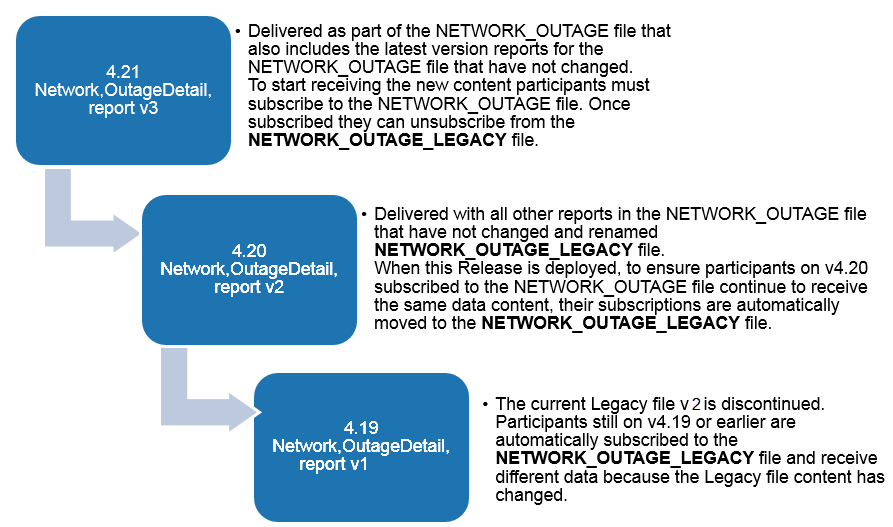Last modified: 04 December 2024
This topic explains the design and maintenance of Legacy files.
AEMO market system software releases support the Latest (n) and Legacy (n-1) integrations to AEMO’s market systems, allowing maintenance of participant interfaces across the system implementation at the AEMO end.
AEMO refers to the previous version as the Legacy version, for example NETWORK_OUTAGE_LEGACY. The example in Legacy file explanation describes what happens to an existing Legacy file in v4.19 when AEMO releases a new Data Model version, 4.21.
AEMO expects participants using Data Interchange to complete the corresponding release implementation at their end, moving from Legacy to Latest, prior to the next system release. Once participants upgrade their systems to the latest release, there is no requirement to maintain the Legacy report subscriptions.
For help with a Data Interchange installation, see:
Figure 2 Legacy file explanation

Important note about bespoke environments
Participants with bespoke integration directly to the Participant File Server and consuming file-based reporting must assess the impact of the Data Interchange Legacy file change to their systems.
AEMO recommends participants who have not transitioned from a LEGACY report do so prior to the AEMO production implementation date to ensure there are no unexpected impacts to participant specific solutions.